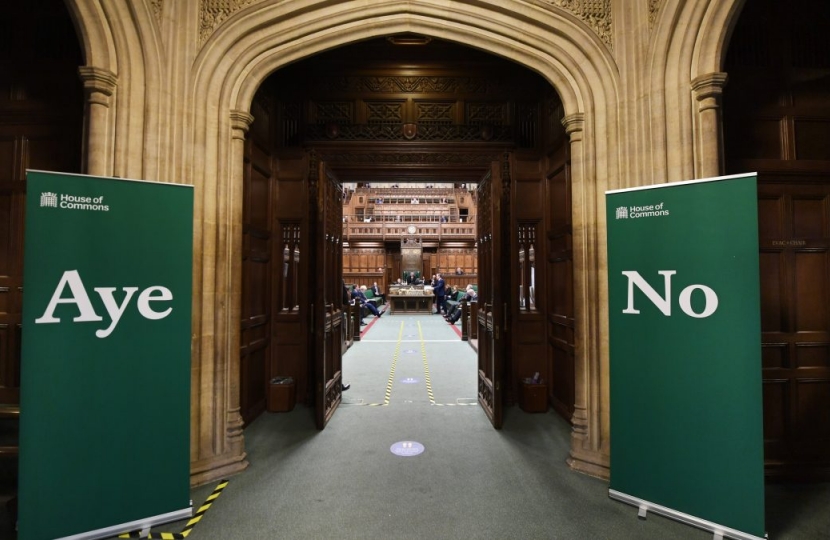
I have received a number of emails about the Coronavirus Act that has recently been renewed by Parliament. I here set out why I supported it.
The following extract from the letter that the Health Secretary sent to all MPs this week explains what the Act does:
“The Act helps us in five important ways:
1. Helping us to boost the health and social care workforce and protect the NHS, through allowing the emergency registration of health and social care professionals.
2. Protecting the public servants who want to keep the UK running safely and securely, for example allowing Courts to keep running in a Covid-secure way through virtual hearings, and allowing Councils to hold their meetings virtually.
3. It contains measures to suppress the spread of the virus, for example by restricting events and public gatherings.
4. Allowing us to treat the deceased with the utmost dignity. The Bill’s measures have helped to eased pressure on coroners, reduce distress to the bereaved, and allowed funerals to take place without delay, and we propose to keep them.
5. It contains measures to protect and support people through this crisis; it provided for the furlough scheme, a temporary increase to working tax credits, and making statutory sick pay payable from day one. It also includes measures to protect both business and residential tenants, by delaying when landlords can progress evictions.”
As you can see, most of these provisions are practical and necessary for the smooth running of the public services and welfare system during the current crisis.
They are intended to support the overall government strategy of suppressing the spread of the virus until a vaccine is developed, while doing everything possible to save jobs, protect the NHS, and keep schools, colleges and universities open. This is a complicated balance to achieve. The approach that the Government is following is to enforce the minimum possible restrictions on a national basis (such as the Rule of Six) while allowing for more restrictions or ‘local lockdowns’ in the areas where the infection rate is alarmingly high. This means that we in the South West, where infections remain low, do not have to endure the lockdowns currently suffered by communities across the North.
Many people writing to me express concern about the use of Coronavirus Act powers to impose lockdowns and other restrictions without the approval of Parliament. I understand this concern and therefore I was very pleased that the Government has agreed to offer Parliament additional scrutiny, including the power to approve or reject new national restrictions before they come into effect.
I have written earlier in the week (see here) why I think that, on balance, we are going about things in the right way, with a ‘suppression’ rather than a ‘mitigation’ strategy as proposed by some commentators who think we should let people use their own judgement about social mixing. Sadly, it appears that mitigation simply won’t work, because too many people will choose to mix and infections will inevitably rise exponentially, endangering older people and those with health conditions. There does not appear to be any alternative to using the power of the law to keep people apart.
This is obviously an appalling situation for a free people, with a tradition of personal liberty and freedom of association going back many centuries. I am pleased, however, that so far most people seem to agree that a temporary suspension of this tradition is a price worth paying to suppress the pandemic until such time as we can treat it with a vaccine. I am deeply uneasy about it all, but I accept the Government’s leadership, based on their assessment of the scientific advice.





